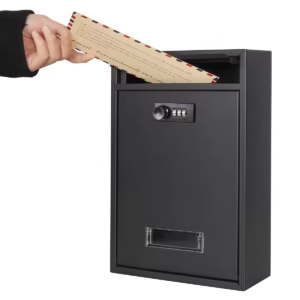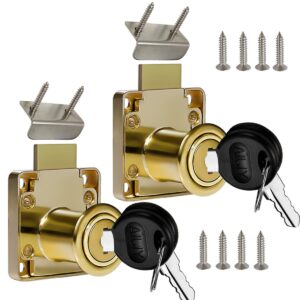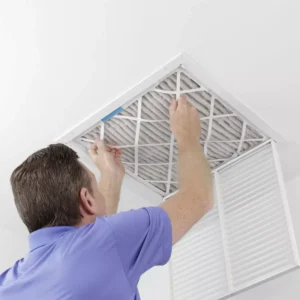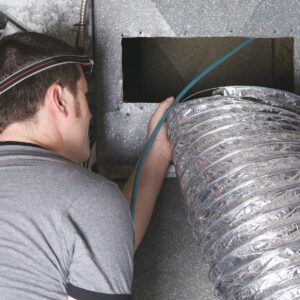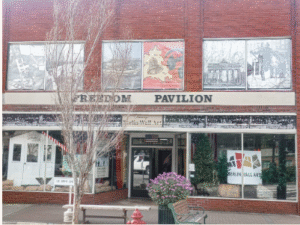
When your heating or cooling system stops working, the heat pump condenser is often the main issue. Most people overlook it, yet it plays a huge role in indoor comfort. Whether you are a homeowner or a technician, knowing how the condenser works can help save time and money.
This blog will explain what a heat pump condenser does, how it fits into the system, what problems may arise, and how to keep it running well. You’ll also learn tips for choosing the right unit and signs that it may need service.
What Is a Heat Pump Condenser?
A heat pump condenser is the outdoor part of a heat pump system. It works by either releasing or collecting heat, depending on the season. In summer, it pushes heat from inside your home to the outside. In winter, it pulls heat from the outside air into your home.
The condenser includes a fan, coils, a compressor, and refrigerant lines. Each part plays a role in heating or cooling your living space.
How the Condenser Fits into the Heat Pump System
The heat pump system moves heat rather than generating it. This makes it more energy-efficient than a traditional furnace or air conditioner. The condenser is responsible for exchanging heat. It works with the indoor unit, also known as the air handler.
When heating your home, the outdoor condenser absorbs heat from the air. The refrigerant in the coils carries this heat indoors. When cooling, the process works in reverse.
This constant cycle of absorbing and releasing heat keeps your home comfortable throughout the year.
Why the Heat Pump Condenser Is So Important
You can’t enjoy consistent temperatures without a working condenser. If this part fails, the whole system will struggle. Common signs of trouble include:
- Strange noises
- Weak airflow
- Higher energy bills
- Inconsistent temperatures
- Ice buildup in winter
Ignoring these signs can lead to larger issues. That includes full system failure and expensive repairs.
Common Heat Pump Condenser Problems
Several issues may affect your condenser. Here are the most frequent ones:
- Dirty Coils
Dust and dirt prevent proper heat exchange. This causes the unit to overwork and use more power.
- Low Refrigerant Levels
Without enough refrigerant, the system can’t move heat properly. This reduces its ability to heat or cool.
- Faulty Fan Motor
A broken fan will not push air across the coils. This causes overheating or freezing.
- Electrical Issues
Burned wires or blown fuses can shut down the condenser. Regular inspections can help catch this early.
- Blocked Airflow
Leaves, grass, or debris around the unit restricts airflow. This lowers efficiency and may damage internal parts.
Heat Pump Condenser Maintenance Tips
You can extend the life of your condenser with routine care. Here are practical steps:
- Clear at least two feet of space around the unit
- Rinse the condenser coils once each season
- Replace the air filter monthly
- Schedule professional inspections twice a year
- Check refrigerant lines for signs of wear
Keeping the unit clean and well-ventilated helps it run more smoothly. Routine checks prevent small issues from turning into big problems.
Choosing the Right Heat Pump Condenser
If your current condenser is failing, it may be time for a new one. Keep these points in mind when choosing a replacement:
- Size Matters
Choose a unit that fits your home size. Too small, and it will overwork. Too large, and it will cycle too often.
- SEER and HSPF Ratings
Higher SEER and HSPF mean better efficiency. Look for models that meet current energy standards.
- Compatibility
Ensure the new condenser works with your current indoor system. Mismatched systems can lead to poor performance.
- Noise Levels
Look for a condenser with a low decibel rating. Quieter units offer more comfort, especially in residential areas.
- Warranty and Support
Buy from a brand that offers solid warranties and service support. This gives you peace of mind.
When to Call a Technician
Some issues need a pro. If you see signs like tripped breakers, strange smells, or system shutdowns, contact a licensed HVAC technician. They have tools and training to handle complex problems.
Technicians can also help with annual tune-ups. These visits help catch leaks, test electrical parts, and check refrigerant levels.
How Weather Affects the Condenser
The condenser sits outside, so it deals with the weather all year. Summer heat and winter frost both affect how it works. Snow and ice buildup can block airflow. Heavy rain may cause rust or electrical damage. Covering the unit during off-seasons helps protect it.
Install the unit on a raised pad to keep it off the ground. This prevents water damage during heavy rain or melting snow.
Energy Savings and Efficiency
A working condenser can help lower your energy bills. When the unit runs well, it doesn’t have to work as hard. This reduces wear and saves power.
You can also pair your heat pump with a smart thermostat. It helps control temperature more efficiently. Plus, most systems now support zoning, so you only heat or cool the rooms in use.
These small upgrades can lead to big savings over time.
Heat Pump Condenser Lifespan
Most condensers last 10 to 15 years. Lifespan depends on brand, maintenance, and local weather. Keeping up with cleaning and service checks is key.
If your unit is older than 12 years, consider a replacement. Newer models run quieter and use less energy.
Final Thoughts
The heat pump condenser is more than just a box outside your home. It’s the key to year-round comfort. With the right care, it can run well for years.
A poorly working condenser will drive up your bills and reduce comfort. Paying attention to early warning signs helps avoid costly repairs. Whether you are planning to buy or already own a system, understanding this part will serve you well.
If you’re ready to make smarter choices for your home’s comfort and efficiency, learn how a heat pump condenser works and what it needs to stay in top shape.
